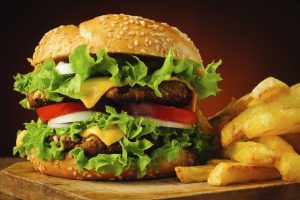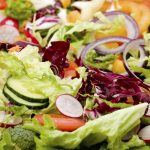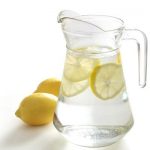![pregnant-woman-on-couch[1]](https://howfacecare.com/wp-content/uploads/2017/12/pregnant-woman-on-couch1-300x200.png) During pregnancy, it is worth paying special attention to diet. This is very important, because the wrong diet can lead to complications or even miscarriage. It turns out that during pregnancy you cannot eat some fruits or seafood, and the rest must be checked for the content of harmful chemicals.
During pregnancy, it is worth paying special attention to diet. This is very important, because the wrong diet can lead to complications or even miscarriage. It turns out that during pregnancy you cannot eat some fruits or seafood, and the rest must be checked for the content of harmful chemicals.
Many women are interested in the question of which foods are useful during pregnancy, and which are simply mandatory. However, not many are concerned about the reverse question. Namely, what products are harmful to the mother and child and should be excluded from use at all time of pregnancy.
Contents
- Product number 1: Products of Fast-Food
- Product number 2: Salt
- Product number 3: Pineapple
- Product number 4: Undercooked meat
- Product number 5: Raw eggs
- Product number 6: Unpasteurized milk and soft cheeses
- Product number 7: Fish and Seafood
- Product number 8: Sugar and sweets
- Product number 9: Coffee and tea
- Product number 10: Beverages containing alcohol
- Video
Product number 1: Products of Fast-Food

Why is fast food harmful and how exactly its components can cause serious damage to the human body, and which are still allowed from time to time? First of all, in detail about the most common products from fast food. When they say “fast food” in the head immediately comes a tray, which flaunts a glass with a carbonated drink, a large multi-story sandwich and a packet of French fries. A huge sandwich contains 30% harmful trans fats. They are widely used in the manufacture of fast food.
Trans fats are all varieties of margarines and certain types of specialized fats that are produced from natural ingredients. Trans fats:
- disrupt the functioning of the immune system,
- spoil metabolic processes,
- bring atherosclerosis closer.
- In addition, trans fats are very harmful to pregnant and breastfeeding women. If a woman during pregnancy ate foods enriched with trans fats, her baby can be born with a negligible body weight. These substances adversely affect the breast milk and penetrate into it.
Before eating fries, you should know that firstly, only the transgenic raw materials are used to prepare French fries. Secondly, kilograms of potatoes are fried in one oil. Who will pour oil and pour new oil every time? This is an extra cost. Modern equipment is equipped with an oil filtration system. However, the filter cannot detain carcinogenic substances that accumulate in the oil during frying. They fall into this wonderful, fragrantly smelling potato!
Important: The product contains a lot of calories, which do not give the body no vitamins, no other nutrients, which are so important for the future mom.
Back
Product number 2: Salt
![5[1]](https://howfacecare.com/wp-content/uploads/2017/12/51-300x225.jpg) More recently, it was widely believed that the use of salt during pregnancy should be restricted to all women without exception due to the danger of edema. However, more recent studies have shown that edema in most cases does not arise because of
More recently, it was widely believed that the use of salt during pregnancy should be restricted to all women without exception due to the danger of edema. However, more recent studies have shown that edema in most cases does not arise because of
salt, but because of the change in the balance of estrogens (female sex hormones) in the mother’s body. Limited use of salt during pregnancy is recommended not to everyone, but only to women who have certain indications (kidney problems, fluid stagnation in the body, high blood pressure).
About 30 years ago, Professor of the Sorbonne in Paris published a theory about the maritime origin of all land creatures. The professor claims that the healthy functioning of the human body depends on establishing and strengthening the correct balance of potassium and sodium in the blood and brain cells. If the blood of a person is poor in salt, then he begins to suffer from acidosis (acidification of the blood).
When using salt during pregnancy, remember:
- Salt is not food, but a food supplement. If a woman used salt in significant amounts before pregnancy, then during pregnancy it should be gradually limit the amount of salt.
- Be attentive to yourself: pay attention to your health and blood and urine tests. Consumed salt can cause increased thirst, and excessive drinking can lead to stagnation of fluid in the body.
- Excessive eating of salt is considered by specialists as one of the factors of hypertensive disease.
It is better to use iodized salt during pregnancy, especially in those parts of the country where there is little natural iodine in drinking water. The usual salt can be replaced with pure sea salt (without flavoring), It is less salty and rich in trace elements, including iodine.
Important: The amount of salt during pregnancy can be reduced by increasing the greenery in the diet (the greens are rich in mineral salts, including sodium and potassium), sea kale (if the doctor permits).
Back
Product number 3: Pineapple
![high-angle-view-of-pineapples-in-crate-587191515-581101da5f9b58564c6a87df[1]](https://howfacecare.com/wp-content/uploads/2017/12/high-angle-view-of-pineapples-in-crate-587191515-581101da5f9b58564c6a87df1-300x199.jpg) It is important to know that this exotic fruit is an allergen, so you need to use it moderately and carefully to avoid the appearance of allergies. Some doctors think that the dangers of daily and excessive consumption of pineapple can cause premature birth. This is due to the over-saturation of the pregnant woman’s body with bromelain, which is able to influence the increase in the tone of the uterus. It is contraindicated if a woman has either ulcers or gastritis, as it, getting into the gastric juice, can increase its acidity.
It is important to know that this exotic fruit is an allergen, so you need to use it moderately and carefully to avoid the appearance of allergies. Some doctors think that the dangers of daily and excessive consumption of pineapple can cause premature birth. This is due to the over-saturation of the pregnant woman’s body with bromelain, which is able to influence the increase in the tone of the uterus. It is contraindicated if a woman has either ulcers or gastritis, as it, getting into the gastric juice, can increase its acidity.
If you eat pineapple in an uncontaminated amount, you can provoke:
- stomach upsets,
- damage the mucous in the mouth,
- and also damage the tooth enamel.
The opinion of most obstetrician-gynecologists converges on the fact that in the first trimester of pregnancy, the use of pineapples or freshly squeezed juice should be minimized. And it will be even better if you do not use it at all. In the second trimester, you can pamper yourself a little, but only on the condition that you are not prone to allergies.
Important: It will be better to listen to the doctors and suffer until the third trimester of pregnancy, which is considered the safest for the future baby’s health, but also do not forget about the sense of proportion.
Back
Product number 4: Undercooked meat
![rare_meat_03[1]](https://howfacecare.com/wp-content/uploads/2017/12/rare_meat_031-300x200.jpg) Meat, insufficiently processed thermally, jerky, “meat with blood”:undercooked meat (pork, beef, rabbit meat, poultry) can contain larvae of helminths (worms), causative agents of taeniosis and trichinosis.
Meat, insufficiently processed thermally, jerky, “meat with blood”:undercooked meat (pork, beef, rabbit meat, poultry) can contain larvae of helminths (worms), causative agents of taeniosis and trichinosis.
If the meat is stored in violation of the temperature regime, it can become a breeding ground for microorganisms that cause intestinal infections: salmonellosis, campylobacteriosis, gastro-enteritis, including caused by golden staphylococcus. It is worth remembering that meat must be eaten with the main dish and not abused by it.
The harm may be the result of the following facts:
- It is very important how the meat is cooked. Preferably eat steamed meat or bake it in the oven, you can stew and cook on the grill. But it is better to forget about the roast meat as this type of cooking kills most of the nutrients.
- The presence of cholesterol can adversely affect the work of the heart and circulatory system in case of abuse of meat products.
- Purine compounds produce uric acid, which badly affects the joints and can trigger arthritis.
- Danger with the frequent abuse of meat is that in the intestines rotting processes can occur and adversely affect overall health.
- Lipids contained in meat can accumulate and adversely affect the circulatory system.
- Duck and turkey contain large amounts of cholesterol.
- In chicken meat it is worth not to eat skin as this is the most fatty and harmful part of the chicken.
- The damage of beef is not in meat itself, but in those substances, that could get into the animal’s body together with feeds – pesticides, herbicides and nitrates. Choose only a certified product.
- Pork is an allergen, some people are intolerant of this type of meat. Also, it is most often infected with parasites that, if improperly processed, can enter the human body.
All the negative effects of meat on the future mother’s body is either abuse, or in the wrong treatment.
Important: You should choose a quality product and use no more than 150-200 g per day. In this case, you will get useful substances and avoid negative consequences.
Back
Product number 5: Raw eggs
![baking-1846027640[1]](https://howfacecare.com/wp-content/uploads/2017/12/baking-18460276401-300x200.jpg) Raw eggs and products containing them:
Raw eggs and products containing them:
- homemade sauces,
- mayonnaise,
- homemade ice cream, in the preparation of which raw eggs are used.
They should be avoided because of potential infection with salmonella, an infectious disease caused by salmonella. Salmonellosis is characterized by a variety of clinical manifestations: from asymptomatic carriage to severe septic flow. Most often occurs as an acute intestinal infection – gastroenteritis, gastroenterocolitis.
Important: The danger of salmonella infections for pregnant women is associated with dehydration.
Back
Product number 6: Unpasteurized milk and soft cheeses
![Kite%20hill%206[1]](https://howfacecare.com/wp-content/uploads/2017/12/Kite20hill2061-300x198.jpg) Unpasteurized milk is potentially dangerous because it can contain dangerous pathogens of infectious diseases such as Brucellosis, campylobacteriosis, enterohemorrhagic E. coli infection, salmonellosis.
Unpasteurized milk is potentially dangerous because it can contain dangerous pathogens of infectious diseases such as Brucellosis, campylobacteriosis, enterohemorrhagic E. coli infection, salmonellosis.
Some types of soft cheeses are potentially dangerous:
- brie,
- camembert,
- feta,
- gorgonzola.
They can contain Listeria bacteria, which cause severe infectious disease listeriosis. Acute and chronic listeriosis of a pregnant woman can be the reason for abortion at different times, as this disease can occur in pregnant women asymptomatically.
Important: Pasteurized soft cheeses, as well as pasteurized milk and cottage cheese, cooked from it, are safe for health.
Back
Product number 7: Fish and Seafood
![1seafood_shop_1[1]](https://howfacecare.com/wp-content/uploads/2017/12/1seafood_shop_11-300x200.jpg) There is a large number of various delicacies of marine origin. Today we meet on supermarket shelves and on the shelves of markets: crab meat, shrimp, mussels, oysters, squids, lobsters and much more.
There is a large number of various delicacies of marine origin. Today we meet on supermarket shelves and on the shelves of markets: crab meat, shrimp, mussels, oysters, squids, lobsters and much more.
- Shrimps: With excessive consumption, the body can be supersaturated with protein and metals. Also, shrimp absorb radioactive substances from sea water, which can adversely affect the body of a pregnant woman.
- Squid: can cause allergic reactions and lead to food poisoning. That this does not happen, you need to seriously consider the choice of the product.
- Crab: It is recommended to eat moderately, because crab meat is high in calories. It should be remembered that crabs are inhabitants of the seabed and they can contain bacteria and radioactive substances
- Octopus: The meat of the octopus may contain microscopic parasites, this is a serious problem, since the accumulation of such substances in large quantities can have a bad effect on individual body functions. Like many seafood, they can cause allergic reactions.
- Fish: shark, king mackerel, swordfish, tile, and also sushi should be avoided as well. In this fish, there is a high content of mercury, which can result in health problems in the newborn, and in the land (as in any raw fish), there are worms, bacteria and viruses. Some species of river fish (especially striped perch, pike perch, trout) actively absorb toxic chemicals from contaminated water bodies. Among the 12 most dangerous substances on a par with dioxins and mercury there are polychlorinated biphenyls, widely used in the electrical and chemical industries. It has been proved that polychlorinated biphenyls have a pronounced negative effect on the fetus.
Important: Before eating seafood, pregnant women should consult a nutritionist, who will help to eliminate the problem of allergic reactions and maintain health of both mom and the baby.
Back
Product number 8: Sugar and sweets

Sugar has no nutritional value, and also contains a large number of empty calories. It would be better to replace sugar with a greater consumption of fresh fruit. It is not recommended to eat a lot of confectionery from sugar, because they contain a lot of fat.
This combination relates these products to the category of high-calorie that provides a minimum amount of nutrients, a large number of calories. Sugar also has an adverse effect on the teeth. Pregnant women are more vulnerable to any infection of the oral cavity and caries, which during pregnancy grows much faster. During pregnancy, avoid eating:
- chocolate,
- cream cakes,
- shortbread cookies,
- donuts, etc.
Important: The ideal solution would be to exclude sugar from the diet of a pregnant woman.
Back
Product number 9: Coffee and tea
![CoffeeAndTea-3[1]](https://howfacecare.com/wp-content/uploads/2017/12/CoffeeAndTea-31-300x200.jpg) These drinks contain compounds such as (caffeine), the excess content of which adversely affects pregnancy and the health of the unborn child. Their excess can lead to:
These drinks contain compounds such as (caffeine), the excess content of which adversely affects pregnancy and the health of the unborn child. Their excess can lead to:
- miscarriage,
- premature rupture of the fetus,
- premature birth or low birth weight.
Moreover, excess caffeine can lead to cardiac dysfunction in newborns, and even seizures. Caffeine is also a diuretic that can lead to an insufficient amount of fluid in the body and result in the electrolyte imbalance. You can replace strong coffee with decaffeinated coffee. During pregnancy, it is not recommended to drink strong tea as well, especially in large amount. You can successfully replace it with fruit teas and herbs.
Back
Product number 10: Beverages containing alcohol
![alcohol[1]](https://howfacecare.com/wp-content/uploads/2017/12/alcohol1-300x200.png) Each dose of alcohol taken by a pregnant woman can adversely affect the fetus, no matter whether it is alcohol contained in wine, beer or other beverages, even in those that are sold with a non-alcoholic note, because they are not completely deprived of alcohol, but contain it in minimum quantities.
Each dose of alcohol taken by a pregnant woman can adversely affect the fetus, no matter whether it is alcohol contained in wine, beer or other beverages, even in those that are sold with a non-alcoholic note, because they are not completely deprived of alcohol, but contain it in minimum quantities.
Therefore, during pregnancy, you should avoid drinking alcohol. Alcohol passes through the placenta and is not metabolized, since the fetus does not have the appropriate enzymes responsible for digestion.
Alcohol during pregnancy can lead to:
- vasoconstriction disrupting the flow of nutrients and oxygen to the fetus, which increases the risk of hypoxia and malnutrition,
- which in turn can lead to physical and mental retardation in children.
Children of mothers who drink large amounts of alcohol during pregnancy are often born prematurely, with congenital defects, and the symptoms of alcohol abstinence are observed in newborns. At a later age, these children may experience psychomotor developmental disorders, significant hyperactivity, and educational problems.
Important: Remember that drinking alcohol during pregnancy increases the risk of miscarriage, premature birth or fetal death.
Back





